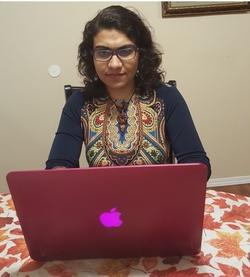April 9, 2018
Recognizing Impact: Kamala Adhikari Dahal
Kamala Adhikari Dahal is a PhD student in the Community Health Sciences program. Her research focuses on identifying the modifiable risk factors for premature birth. Specifically, it aims to examine the effect of individual-level and neighborhood-level risk factors (particularly, anxiety, depression, and neighborhood socioeconomic status) on the risk of premature birth.
This research will create new knowledge on what groups of women have the highest risk for premature birth. The findings will be shared with health professionals, community agencies, and policy makers across Canada and globally through the conferences, professional networks, newsletters and stakeholders’ meetings. Information on who is at highest risk for premature birth may: (a) support health professionals in their clinical decision making, and (b) inform policy makers in the design and implementation of public health programs targeting those populations at increased risk for premature birth. For example, designing the population-based interventions that reduce the prevalence of anxiety and depression in vulnerable pregnant women may lead to a decrease in the incidence of premature birth.
Globally, one in three deaths of newborn babies is related to premature birth and amongst survivors, breathing problems, vision problems, and developmental disabilities are common. In Canada, one in every twelve babies is born premature, resulting in an annual economic burden of $587 million, and Alberta has the second highest premature birth rate of the Canadian provinces. As clinical research and interventions designed to prevent premature birth have largely been ineffective in reducing the incidence of premature birth, Kamala’s research is investigating novel modifiable risk factors for premature birth including anxiety and depression during pregnancy and neighborhood socioeconomic status. Through analyzing data from the All Our Families and the Alberta Pregnancy Outcomes and Nutrition community-based cohort studies in Alberta, she aims to inform policy-makers and relevant community stakeholders as to where resources may be best allocated to prevent premature birth.
When not working on her research, Kamala likes to spend time volunteering in the community and with her family. She is actively engaged in several mentorship, advocacy, and community activities at the University of Calgary, and aim to help create an environment that fosters the academic and professional success of her fellow students. In addition, she likes to learn more about Canadian culture, cook intercontinental foods, and spend time at home with her family.

Kamala Adhikari Dahal
